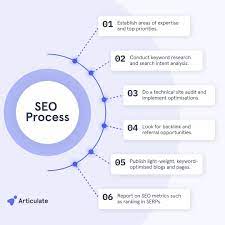Unlocking the Power of Search Engine Optimisation in the UK
The Power of Search Engine Optimisation in the UK
Search Engine Optimisation (SEO) has become a crucial component of digital marketing strategies in the UK. As online competition continues to intensify, businesses are realising the importance of optimising their websites to rank higher on search engine results pages.
In the United Kingdom, SEO plays a significant role in helping businesses connect with their target audience and drive organic traffic to their websites. By implementing effective SEO techniques, companies can improve their online visibility, attract more visitors, and ultimately increase conversions and revenue.
Benefits of SEO in the UK
Increased Visibility: By optimising your website for relevant keywords, you can enhance your visibility on search engines like Google, Bing, and Yahoo. This increased visibility helps potential customers find your business more easily.
Targeted Traffic: SEO allows you to target specific demographics and geographic locations, ensuring that your website attracts relevant visitors who are more likely to convert into customers.
Enhanced User Experience: SEO involves improving various aspects of your website, such as site speed, mobile-friendliness, and user navigation. A well-optimised site provides a better user experience, leading to higher engagement and lower bounce rates.
Key SEO Strategies in the UK
Keyword Research: Identifying relevant keywords that align with your business offerings is essential for successful SEO campaigns in the UK. Conducting thorough keyword research helps you understand what terms your target audience is searching for.
On-Page Optimisation: Optimising on-page elements such as meta tags, headings, and content structure is crucial for improving search engine rankings. Creating high-quality content that incorporates target keywords naturally can significantly impact your site’s performance.
Local SEO: For businesses targeting local customers in the UK, optimising for local search is vital. This includes creating Google My Business listings, obtaining customer reviews, and ensuring consistent NAP (Name, Address, Phone Number) information across online directories.
The Future of SEO in the UK
The landscape of SEO is constantly evolving as search engines update their algorithms and user behaviours change. In the UK market, staying ahead of these trends is essential for maintaining a competitive edge online.
As voice search technology grows in popularity and mobile usage continues to rise, adapting your SEO strategies to accommodate these changes will be crucial for success in the UK digital market.
In conclusion, investing in effective Search Engine Optimisation practices can have a profound impact on your online presence and business growth in the UK. By staying informed about industry trends and implementing best practices tailored to the UK market, businesses can unlock new opportunities for reaching their target audience and achieving sustainable growth.
8 Essential SEO Tips for Enhancing Your Website’s Visibility in the UK Market
- 1. Conduct keyword research to identify relevant search terms for your UK audience.
- 2. Optimise your website’s meta tags, including title tags and meta descriptions, with UK-specific keywords.
- 3. Create high-quality, original content tailored to the interests and needs of UK users.
- 4. Ensure your website is mobile-friendly and loads quickly for UK visitors.
- 5. Build backlinks from reputable UK websites to improve your site’s authority and visibility in local search results.
- 6. Utilise local SEO strategies such as creating Google My Business listings with accurate UK business information.
- 7. Monitor your website’s performance using tools like Google Analytics to track traffic from the UK and adjust your SEO strategy accordingly.
- 8. Stay updated on SEO trends and algorithm changes that may impact search engine rankings in the UK.
1. Conduct keyword research to identify relevant search terms for your UK audience.
To maximise the effectiveness of your SEO efforts in the UK, it is crucial to conduct thorough keyword research to pinpoint the most relevant search terms for your target audience. By understanding the specific keywords and phrases that resonate with UK users, you can tailor your content and optimisation strategies to align closely with their search intent. This proactive approach not only boosts your website’s visibility on search engine results pages but also enhances the likelihood of attracting qualified traffic that is more likely to convert into valuable leads or customers.
2. Optimise your website’s meta tags, including title tags and meta descriptions, with UK-specific keywords.
To enhance your website’s visibility in the UK search engine results, it is crucial to optimise your meta tags effectively. This involves refining your title tags and meta descriptions by incorporating UK-specific keywords that resonate with the local audience. By aligning your meta tags with relevant terms that UK users are searching for, you can improve your site’s chances of ranking higher and attracting targeted traffic from the region. Optimising these elements not only boosts your SEO performance but also enhances the overall user experience, leading to increased engagement and conversions within the UK market.
3. Create high-quality, original content tailored to the interests and needs of UK users.
To enhance your search engine optimisation efforts in the UK, it is crucial to create high-quality, original content that resonates with the interests and needs of UK users. By tailoring your content specifically to the preferences of the UK audience, you can establish a strong connection with potential customers and improve your website’s relevance in local search results. Providing valuable and engaging content that addresses the unique requirements of UK users not only boosts your site’s visibility but also increases user engagement and encourages repeat visits, ultimately driving organic traffic and conversions.
4. Ensure your website is mobile-friendly and loads quickly for UK visitors.
To maximise the effectiveness of your SEO efforts in the UK, it is crucial to ensure that your website is optimised for mobile devices and loads quickly for visitors accessing it from the UK. With a growing number of users browsing the internet on their smartphones and tablets, having a mobile-friendly website not only enhances user experience but also positively impacts your search engine rankings. In the competitive digital landscape of the UK, prioritising mobile responsiveness and fast loading times can significantly improve your site’s visibility and engagement with local visitors.
5. Build backlinks from reputable UK websites to improve your site’s authority and visibility in local search results.
To enhance your website’s authority and visibility in local search results in the UK, it is crucial to focus on building backlinks from reputable UK websites. By obtaining backlinks from trusted sources within the UK, you not only signal to search engines that your site is credible and relevant but also increase the likelihood of ranking higher in local search queries. These backlinks act as a vote of confidence for your website, helping to establish your online presence and attract more targeted traffic from within the UK market.
6. Utilise local SEO strategies such as creating Google My Business listings with accurate UK business information.
To maximise your online visibility in the UK, it is essential to leverage local SEO strategies effectively. One crucial tip is to create Google My Business listings that contain accurate and up-to-date information about your UK-based business. By utilising this approach, you can enhance your local presence, increase your chances of appearing in relevant search results, and attract potential customers who are actively seeking products or services in your area. Consistency and accuracy in your Google My Business listing can significantly impact your local SEO performance and ultimately drive more foot traffic and online conversions for your business in the UK.
7. Monitor your website’s performance using tools like Google Analytics to track traffic from the UK and adjust your SEO strategy accordingly.
Monitoring your website’s performance is crucial for successful Search Engine Optimisation in the UK. By utilising tools like Google Analytics to track traffic specifically from the UK, you can gain valuable insights into your audience’s behaviour, preferences, and interactions with your site. This data allows you to make informed decisions and adjustments to your SEO strategy, ensuring that you are effectively targeting and engaging with your UK-based visitors. Regular monitoring and analysis of performance metrics enable you to optimise your website for better visibility, increased traffic, and ultimately, improved conversions within the UK market.
8. Stay updated on SEO trends and algorithm changes that may impact search engine rankings in the UK.
It is essential for businesses in the UK to stay updated on SEO trends and algorithm changes that could potentially influence search engine rankings. By remaining informed about the latest developments in the field of Search Engine Optimisation, companies can adapt their strategies to align with current best practices and ensure their websites maintain high visibility and relevance in search results. Keeping abreast of these trends enables businesses to proactively respond to algorithm updates, stay ahead of the competition, and maximise their online presence in the dynamic digital landscape of the UK.


